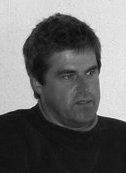Stable Isotopes + Trace Elements
Lecturers: Torsten Bickert
The principles of natural light stable isotopic fractionation processes are used to quantitatively reconstruct marine paleoenvironments from the isotopic composition of fossil shells, as well as bulk and compound specific organic matter. Minor and trace elements in biogenic carbonates are introduced as additional proxies for physicochemical parameters. Their applicability and reliability together with isotopic proxies are discussed in a number of examples from selected case studies and a variety of geological times in Earths history
to achieve an advanced knowledge of stable isotope fractionation and trace element discrimination in marine biogeochemical processes and to understand and critical assesmentof the application of isotopes and trace elements in paleoenvironmental research
Modul exam (written) on selected topics from all module courses
written exam
Will be provided during the course.
1st SWS: Introduction, motivation
2nd SWS: Proxies for paleotemperature reconstruction
3rd SWS: hydrological cycle, salinity and ice volume
4th SWS: carbon cycle and ocean circulation
5th SWS: atmosphere-ocean interaction, pCO2
6th SWS: ocean carbonate production and burial
7th SWS: bioproductivity and nutrient utilisation
8th SWS:
9th SWS:
10th SWS:
11th SWS:
12th SWS:
13th SWS:
14th SWS:
Basic Data
05-MMG-EA1-2
Study Program
Master Marine Geosciences
Module Name
Environmental Archives Methods
Course Type
Lecture, Exercise (L+E)
First Year of Study
1.5 CP
1 SWS
Winter Term
Course Language
English
Contact Person

Center for Marine Environmental Sciences (MARUM)
Dr. Torsten Bickert
MARUM1 3070R
Phone: +49 421 218 - 65535
tbickert marum.de
marum.de
Center for Marine Environmental Sciences (MARUM)
Dr. Torsten Bickert
MARUM1 3070R
Phone: +49 421 218 - 65535
tbickert marum.de
marum.deLecturer

Center for Marine Environmental Sciences (MARUM)
Dr. Torsten Bickert
MARUM1 3070R
Phone: +49 421 218 - 65535
tbickert marum.de
marum.de
Center for Marine Environmental Sciences (MARUM)
Dr. Torsten Bickert
MARUM1 3070R
Phone: +49 421 218 - 65535
tbickert marum.de
marum.de
